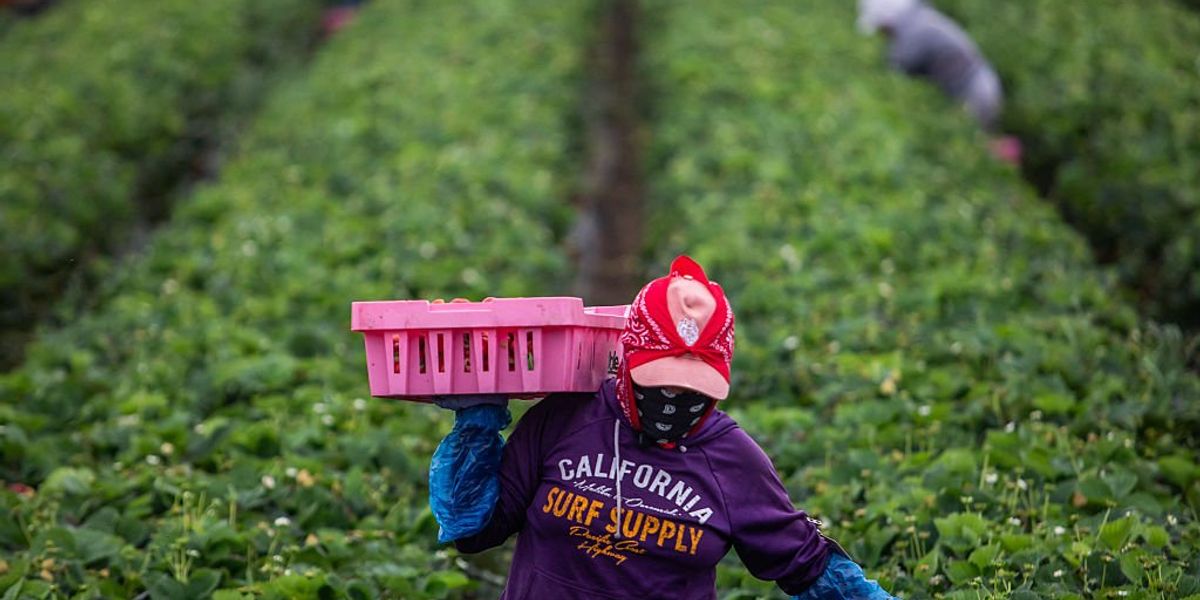

I’m a strong supporter of President Trump. I respect his drive to secure our borders, restore national sovereignty, and bring real vitality back to the American economy.
But the Department of Homeland Security’s latest move — limiting workplace enforcement and putting a stop to Immigration and Customs Enforcement raids on agricultural employers — cuts against the very heart of the America First agenda. It protects the same corporate giants that are bleeding rural communities dry.
If DHS and USDA want to fix agriculture, they need to stop hiding behind the word ‘farmer’ when they’re really talking about corporate middlemen.
Let’s not kid ourselves: This policy isn’t about helping “farmers.” It’s a gift to foreign-owned industrial agriculture giants like JBS and other multinationals that built their business models on cheap labor, government handouts, and total control over every link in the supply chain.
These are the corporations responsible for wiping out independent family farms across the country.
The Biden administration let Big Ag off the hook. Is Trump really about to follow suit?
Hiring legally and thriving
You don’t need to hire illegal workers to run a successful farm or ranch. In fact, some of the best in the business don’t.
Look at White Oak Pastures in Bluffton, Georgia. Or Polyface Farm in Swoope, Virginia. Or Meriwether Farms out in Wyoming. These aren’t fantasy models. They’re real, thriving operations built on legal labor, strong local roots, and, when needed, carefully managed visa programs.
They don’t rely on mass illegal labor. They don’t need to.
What they do is create real jobs. They pay honest wages. They bring life back to rural towns.
Will Harris is the biggest employer in Bluffton — not because he cuts corners on labor, but because he heals the land, strengthens his community, and delivers food independence.
This is what Trump’s golden age of American farming should look like: self-reliance, real prosperity, and pride in a job well done.
A free pass for Big Ag
With this new policy, DHS basically gave corporate amnesty to the likes of Tyson, Smithfield, JBS, Cargill — you name it. These are companies that depend on cheap, illegal labor to keep their bloated, centralized model afloat.
We’ve been down this road before. Remember Ronald Reagan’s 1986 amnesty? Legalization now, enforcement later — except “later” never came.
And now, we’re repeating the same mistake.
This policy protects a broken system built on:
- Top-down corporate control
- Massive consolidation
- Debt traps and labor abuse
- De facto open borders
- Slave-wage labor
- Legal loopholes for billion-dollar companies
What we’re left with is what journalist Christopher Leonard called “chickenization” — a corporate takeover of the food system that treats farmers like serfs and workers like machines.
The U.S. Department of Agriculture’s loyalty to these monopolies has already hollowed out towns, forced families off their land, and turned our food supply into a global pipeline where cartel-linked produce replaces homegrown independence.
This doesn’t serve America. It serves the bottom lines of a few mega-firms that like open borders and look the other way on enforcement.
And whether it admits it or not, this is how the United Nations’ Sustainable Development Goals get implemented — quietly, through broken farms, outsourced jobs, and illegal hires.
 Photo by Tasos Katopodis/Getty Images
Photo by Tasos Katopodis/Getty Images
This isn’t just about agriculture. It’s about national security.
A nation that can’t feed itself without breaking its own laws isn’t sovereign. And one that lets multinationals run roughshod over the heartland while outsourcing production to places run by cartels is heading for trouble.
We can do better
If DHS and USDA want to fix agriculture, they need to stop hiding behind the word “farmer” when they’re really talking about corporate middlemen.
Trump has a chance to change course — one that truly puts Americans first. That means backing the producers who follow the law, hiring citizens or legal workers, and building food systems that support independence, not dependence.
Independent farmers and ranchers are ready to help. They’ve already shown what works: strong property rights, legal labor, fair water access, and a commitment to community.
This isn’t some policy wish list. It’s already happening.
And it’s winning.
Let’s not give our food, our land, or our future back to the monopolies that wrecked the past.
.png)
 5 hours ago
5
5 hours ago
5














 English (US)
English (US)